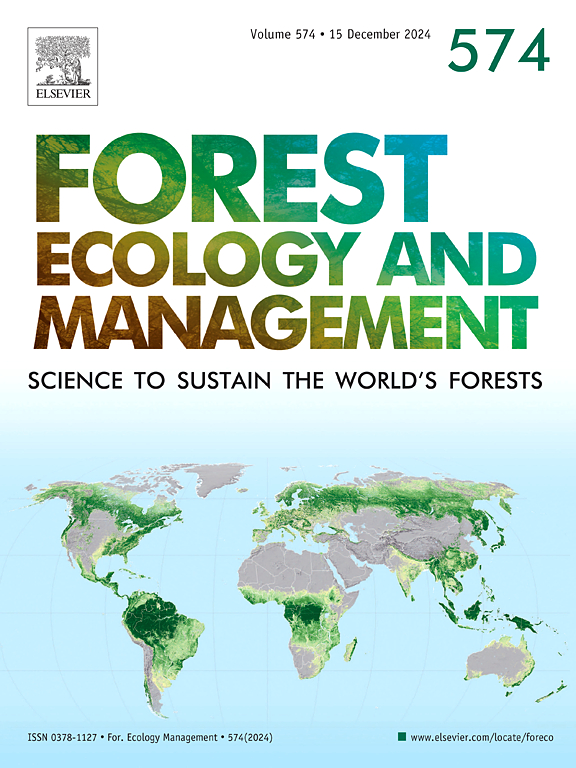Long-term storage does not affect the genetic diversity of pedunculate oak acorns; instead, the collection process is crucial
IF 3.7
2区 农林科学
Q1 FORESTRY
引用次数: 0
Abstract
Pedunculate oak (Quercus robur L.) has high economic and ecological value. Unfortunately, irregular intervals of fruiting of this tree species make it sometimes necessary to store seeds as a safeguard against years of poor yields despite the related difficulties. In this study, we addressed the problem of potential changes in the gene pool richness of long-term stored acorns. Our study was conducted for two pedunculate oak seed stands in the south of Poland. Acorns from Niepołomice were stored for 53 months, whereas acorns from Kobiór were stored for 28 months. We analyzed the genetic variation of seedlings grown from acorns before and after storage. Additionally, we compared these results with the gene pools of the source forest stands and of natural regenerations from both locations. As far as we know, this is the first report about changes in the gene pools of long-term stored acorns in relation to the gene pools of their corresponding source stands and natural regenerations. We found that genetic variation was high and comparable across all study groups. We noted only slight changes in the gene pools after long-term storage, which were more pronounced in Kobiór. Our results indicated that the gene pools of acorns were not representative of their corresponding source stands. We conclude that the seeds collection has a significantly greater impact on the gene pool of future planting material than the storage itself. Therefore, there is no evidence to discourage the use of long-term stored acorns for planting purposes.
求助全文
约1分钟内获得全文
求助全文
来源期刊

Forest Ecology and Management
农林科学-林学
CiteScore
7.50
自引率
10.80%
发文量
665
审稿时长
39 days
期刊介绍:
Forest Ecology and Management publishes scientific articles linking forest ecology with forest management, focusing on the application of biological, ecological and social knowledge to the management and conservation of plantations and natural forests. The scope of the journal includes all forest ecosystems of the world.
A peer-review process ensures the quality and international interest of the manuscripts accepted for publication. The journal encourages communication between scientists in disparate fields who share a common interest in ecology and forest management, bridging the gap between research workers and forest managers.
We encourage submission of papers that will have the strongest interest and value to the Journal''s international readership. Some key features of papers with strong interest include:
1. Clear connections between the ecology and management of forests;
2. Novel ideas or approaches to important challenges in forest ecology and management;
3. Studies that address a population of interest beyond the scale of single research sites, Three key points in the design of forest experiments, Forest Ecology and Management 255 (2008) 2022-2023);
4. Review Articles on timely, important topics. Authors are welcome to contact one of the editors to discuss the suitability of a potential review manuscript.
The Journal encourages proposals for special issues examining important areas of forest ecology and management. Potential guest editors should contact any of the Editors to begin discussions about topics, potential papers, and other details.
 求助内容:
求助内容: 应助结果提醒方式:
应助结果提醒方式:


